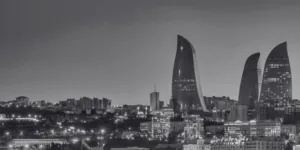Truong My Lan’s huge fraud scheme reached its peak during Hanoi’s vaunted ‘blazing furnace’ anti-corruption drive.
After Truong My Lan was sentenced to death last week over her role in a US$12.5 billion financial fraud case, the consensus appears to be that the Communist Party of Vietnam is offering up a human sacrifice to show that its “blazing furnace” anti-corruption campaign is for real.
It could be a ruse; the authorities may have announced this punishment before the end of the trial as a way of terrifying Lan into revealing where more of the stolen assets are located and to name more names of accomplices.
If she plays along, maybe she’ll be spared death. The courts have done this before.
Yet many of her 84 co-conspirators also had their sentences announced early, and none of them was sentenced to death. The authorities have made Lan a hate figure as part of their anti-corruption campaign, unmuzzling the state-run media so they can vilify and demonize her.
Deciding to execute the chairwoman of Vietnamese developer Van Thinh Phat is an “exemplar of Vietnam’s effort to crack down on corruption not only in the state sector but also in private spaces,” commented Nguyen Khác Giang in a Time magazine piece that stated: “That Vietnam sought to make an example of Lan was clear.”
But there’s a problem with this logic.
Set aside the moral dimension of whether a state should kill one of its own citizens – Vietnam is among the world’s most prolific executioners of prisoners and metes out capital punishment for vaguely-defined crimes – and focus on the consequentialist intent.
The ruling Communist Party of Vietnam’s anti-corruption campaign started in 2016. The following year, the first Politburo member was taken down and Trinh Xuan Thanh, a fugitive state company official, was kidnapped by the Vietnamese secret service in Berlin.
In 2018, the Communist Party purged its junior ranks. It set its sights on provincial figures in 2019. Nguyen Xuan Phuc “resigned” as state president in early 2023 over corruption.
Phuc’s successor, Vo Van Thuong, “quit” last month for the same reasons. Hundreds of officials and businesspeople have been jailed. Tens of thousands have probably lost their jobs.
‘Blazing furnace’
Anyone with the most basic understanding of Vietnam knows there is a much-vaunted anti-graft campaign underway. Yet, despite all those dismissals and jailings and kidnappings and resignations, Lan and her accomplices still thought they could get away with stealing US$12.5 billion. Her actions over several years led Saigon Commercial Bank to lose the equivalent of US$27 billion, state media said.
Their fraud began in 2012, but the prosecution says most of Lan’s bribery, embezzlement and banking law violations took place between early 2018 and October 2022, when she was finally arrested – and when the “blazing furnace” had been roaring for almost six years.
Some observers might argue that if Lan was not deterred by seeing other people be jailed, kidnapped or publicly shamed, maybe she would have been deterred had the Communist Party started killing the corrupt back in 2016. So her death, accordingly, will be an example to others to come.
But this assertion requires proponents to argue that the Communist Party needs to start killing people en masse. After all, why would someone be deterred by the murder of one person, by a one-off sacrifice?
The exact problem with Lan’s death sentence is that it’s unique and exceptional – suggesting that the message from the Communist Party is that it will only execute those who commit fraud on that monumental scale, which amounts to 3% of Vietnam’s GDP.
Where’s the deterrence factor when, in all probability, there aren’t many cases involving someone stealing US$12.5 billion?
At the same, though, had the court sentenced Lan to life in prison, rather than to death, the story wouldn’t have reverberated around the world as it has, published in almost every newspaper of repute.
Hanoi wouldn’t have been able to run with its narrative: ‘Look at how serious we are against corruption; we kill people for it!’
Perhaps the Vietnamese people would have felt short-changed. Maybe the fears of foreign investors wouldn’t have been assuaged, and Vietnam’s transparency scores might improve again thanks to a blood sacrifice.
Damage control
However, killing Lan serves no purpose of deterrence unless the Communist Party is about to start killing a lot more people for stealing a lot less. Given the monumental scale of corruption in Vietnam, including what has yet to be revealed, that will be quite a bit of state-sanctioned killing.
Instead, Lan’s death sentence was retribution, reputational damage control by a Communist Party that has been greatly embarrassed by this whole affair. In handing down the sentence, the court argued that she was guilty of “eroding people’s trust in the leadership of the party and state.”
The prosecutors went into the trial last month arguing that the death penalty was needed so Lan could be “ostracized from society forever.”
While some observers may argue that the Communist Party’s decision to put Lan to death shows the power and competency of Hanoi’s anti-graft campaign, it actually reveals the opposite.
Truong Hue Van and her associates’ crimes made a mockery of the “blazing furnace” campaign: The biggest fraud case ever in Vietnam was carried out at the same time as Vietnam’s most serious anti-graft campaign.
Now, the Communist Party is trying to turn a negative into a positive by saying the crime was uncovered and severely punished. It’s trying to hide the obvious truth that an unaccountable Leninist system permits the crime in the first place.
The “Blazing Furnace” may burn on, but it will not truly torch corruption so long as the Communist Party of Vietnam is both the arsonist and the firefighter.
The article was originally published by Radio Free Asia.






